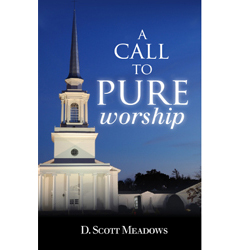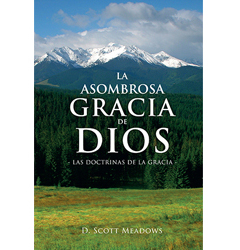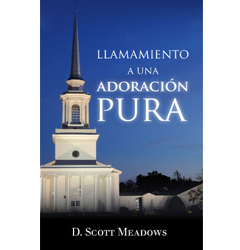

Godliness and Answered Prayer
D. Scott Meadows
Not everyone is godly, and the ungodly cannot expect God to hear and answer their prayers. Yet the prayers of the godly, being answered, are not answered as payment from God for their godliness, as if He owes it to them. Their godliness is another evidence, with answered prayer, of God’s gracious favor, of which believers in themselves are unworthy. True prayer from our hearts and mouths is one of the first-fruits of God’s gracious gift of godliness in our hearts and lives. “Behold, he prayeth,” the Lord assured Ananias (Acts 9.11). Prayer was a sign of Saul’s genuine conversion.
Correlation is not causation. Every statistician knows this basic principle. A statistical correlation between my predawn rising and the dawn is no proof that my ritual causes the sunrise. Nor does godliness cause answered prayer.
Yet for all this, we must not deny the correlation of godliness and answered prayer or we run the risk of encouragement in sin and discouragement from prayer. Two biblical texts helpfully illustrate the correlation: Psalm 66.18 and 1 John 3.22.
OF PSALM 66.18
If I regard iniquity in my heart, the Lord will not hear me.
To “regard iniquity in my heart” is to love and esteem it, and, to practice it (Webster 1828 Dictionary). The original word means to consider or look at something; it may have the connotation of cherishing it, viewing it with pleasure. That seems to be the sense here. “Iniquity” is evil behavior, that which is morally objectionable by the standard of God’s moral law. Alternate renderings give, “If I had harbored sin in my heart,” “Had I cherished evil in my heart,” and, “Had I an evil thought in my mind.”
It is important to note that the godly psalmist is not saying that he had regarded iniquity in his heart, but rather describing a hypothetical case which would have been associated with the Lord “not hearing” him, that is, accepting and answering his prayer. The psalmist immediately afterward testifies that “verily God hath heard me; he hath attended to the voice of my prayer. Blessed be God, which hath not turned away my prayer, nor his mercy from me” (vv. 19, 20). This is the testimony of a godly man that had attended gladly and dutifully upon the private and public worship of God. He had fulfilled the former vows he had made to God when he was in trouble (vv. 13–15). All of this—his prayers, his vows, his sacrifices, his praises to the Lord—was evidence of what God had done for his soul (v. 16, 17).
About the correlation of godliness and answered prayer here, Spurgeon said,
Nothing hinders prayer like iniquity harbored in the breast; as with Cain, so with us, sin lies at the door, and blocks the passage. If you listen to the devil, God will not listen to you. If you refuse to hear God’s commands, he will surely refuse to hear your prayers. An imperfect petition God will hear for Christ’s sake, but not one which is willfully miswritten by a traitor’s hand. For God to accept our devotions, while we are delighting in sin, would be to make himself the God of hypocrites, which is a fitter name for Satan than for the Holy One of Israel (The Treasury of David, in loc.).
Now consider another verse that teaches the correlation of godliness and answered prayer by a positive rather than by a negative statement.
OF 1 JOHN 3.22
And whatsoever we ask, we receive of him, because we keep his commandments, and do those things that are pleasing in his sight.
The blessing of answered prayer in the first part of this verse is followed by the blessing of godliness in the second part, and these are connected by the word “because.” Essentially, John wrote that “we,” John’s Christian readers, enjoy answered prayer because of our godliness. That is correlation, but not causation.
The answered prayer is startlingly described as receiving “whatsoever we ask.” Later in the epistle, John says that we have confidence about answered prayer when “we ask any thing according to his will” (1 Jn 5.14). That characteristic of answered prayer also applies in 3.22—it is according to God’s will. It is making requests for which we have a warrant from Scripture on the basis of God’s truth and promises.
The godliness John has in view is also described in a wonderful way. It is keeping God’s commandments and doing those things that are pleasing in His sight. Now these are probably not to be understood as two different things, but as two ways of describing essentially the same thing. We please God in keeping His commandments, and in no other way. All that we may do with His approval is comprehended in the sufficient rule He has given us in His word for our faith and practice. People have strayed far from God when they invented new ways they imagined would please Him in addition to those we find in Holy Scripture. The summary commandment John mentions in this context is believing on Christ and loving one another as Christians (v. 23).
The connective word, “because,” must be interpreted carefully, in keeping with the whole biblical revelation of salvation by God’s free grace alone in Christ alone through faith alone. It certainly does not mean that God gives us whatever we ask in keeping with His will because we have earned this by our good behavior in His sight. That illustrious champion of free grace, John Calvin, explains:
By saying, because we keep his commandments, he means not that confidence in prayer is founded on our works; but he teaches this only, that true religion and the sincere worship of God cannot be separated from faith. Nor ought it to appear strange that he uses a causal particle, though he does not speak of a cause; for an inseparable addition is sometimes mentioned as a cause: as when one says, Because the sun shines over us at midday, there is more heat; but it does not follow that heat comes from light (in loc.).
Calvin is saying that answered prayer is an “inseparable addition” to godliness, for how would the same God who gives us the grace to obey Him fail to answer our prayers that He prompts in and from us—all of this being the fruit of His gracious favor to us?
Beloved, these biblical truths have a tendency in those who believe them and consider them well to stir us toward godliness and toward prayer. As the Spirit of holiness is at work in you, sanctifying your heart and life, and supplying faith in God’s promises that leads you to ask for these blessings, you are completely warranted to have a strong expectation—indeed to know—that He is pleased with your petitions and will grant the things you ask of Him. There really is a correlation between godliness and answered prayer. Ω
All Rights Reserved. Used with permission. No part of this article may be used or reproduced in any manner whatsoever or translated without written permission.
The following books by D. Scott Meadows are available at Trinity Book Service and Cristianismo Histórico:
Ebook: A Call to Pure Worship | D. Scott Meadows
Ebook: God’s Astounding Grace | D. Scott Meadows




